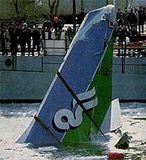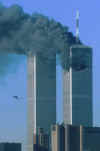Ten Years After 9-11, Still No Public Safety Network -- Wireless Week



This blog has reported repeatedly on the issue and made suggestions. So you don’t have to hear my viewpoint this time, I strongly recommend a Wireless Week interview with Gregg Riddle, who advocates for public safety workers from his post as president of APCO International, the major trade association in the public safety area. I do not always agree with APCO, but what he says in this interview makes a lot of sense.
Here is a brief excerpt:
WW: How robust are the nation's public safety networks right now? If we had another terrorist attack, would we see the same breakdown in communications we did 10 years ago?
Riddle: It's very possible because we have not addressed the interoperability concern. Public safety operations today are spread out over multiple portions of the spectrum - VHF, UHF, 700 MHz, 800 MHz and low band. They all have their own interoperability capabilities, but when you have public safety utilizing multiple portions of the spectrum, they're not easily interoperable, which was demonstrated on Sept.11, 2001.
Interoperability is critical. It was one of the Sept. 11 Commission's report items that's not been met after 10 years – interoperability for public safety. We're still struggling to meet the goal as described in the report.
There is more than enough blame to go around here both in government entities who played political games and turf battles and corporate interests who wanted to use this situation for market hegemony and their financial benefit. But this is not the time for a postmortem on who has responsibility for this mess. Rather it is the time to remember the spirit of national unity that existed 10 years ago and use it to come up with a consensus solution and adopt it.



![Validate my RSS feed [Valid RSS]](valid-rss-rogers.png)

